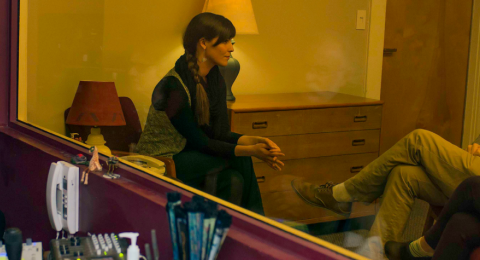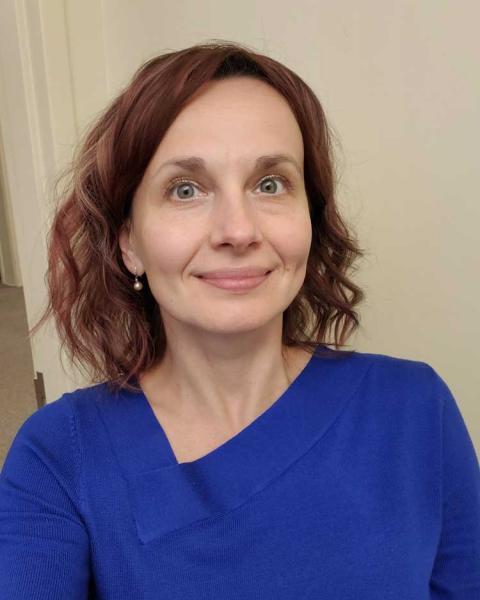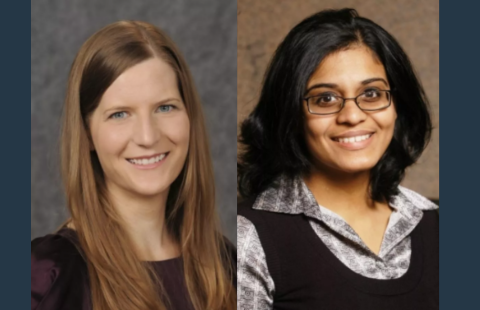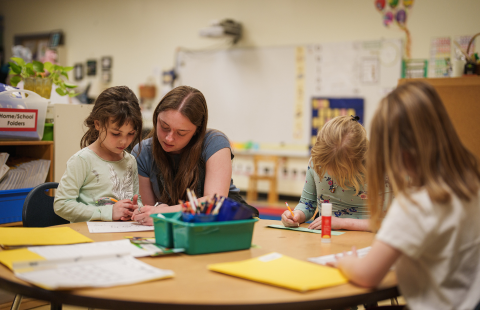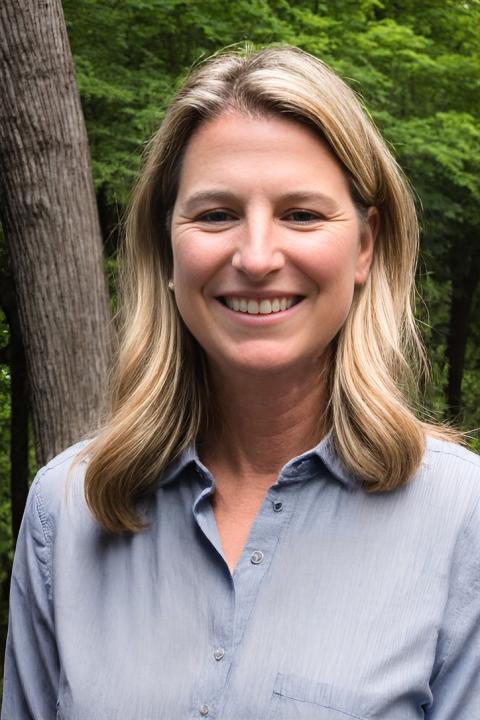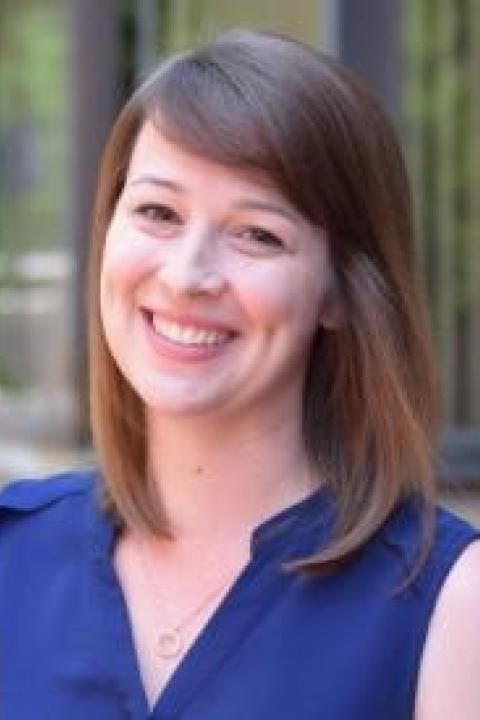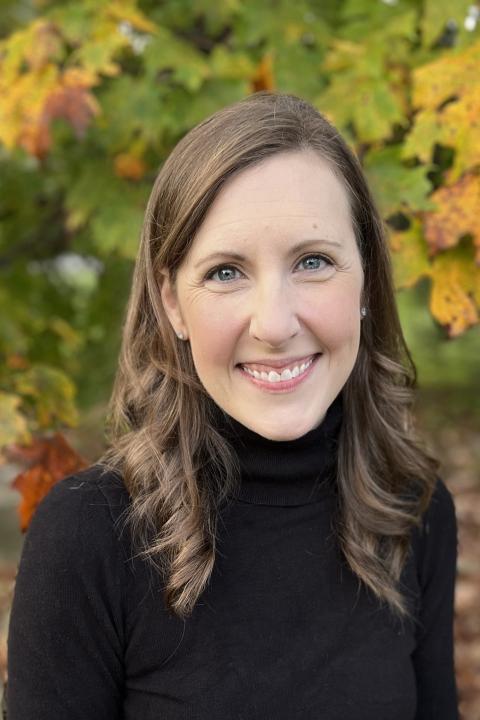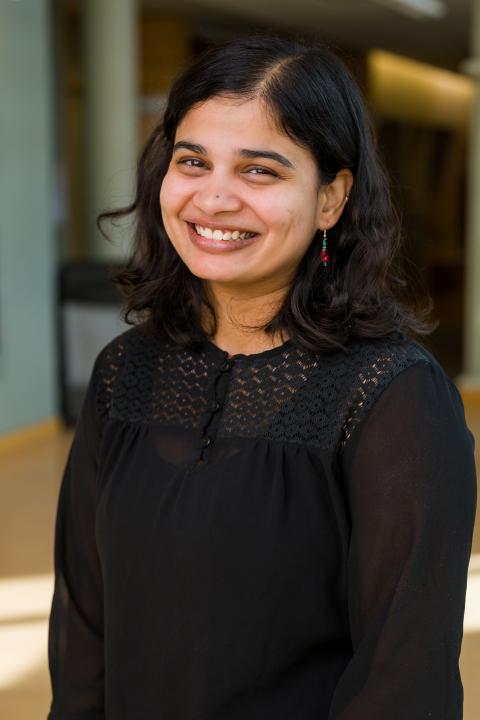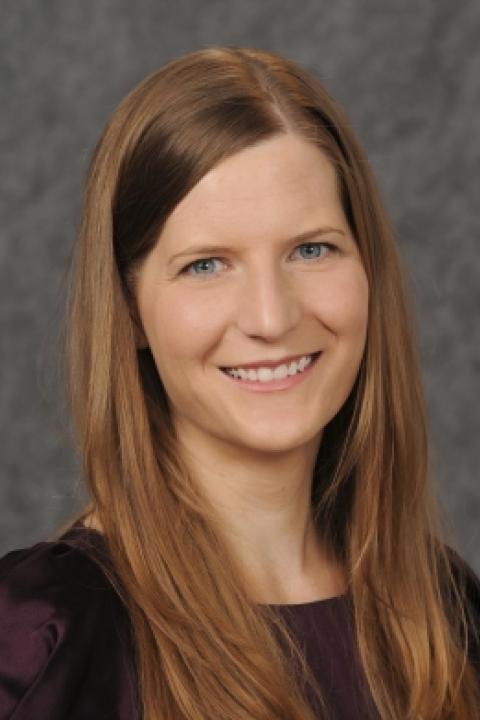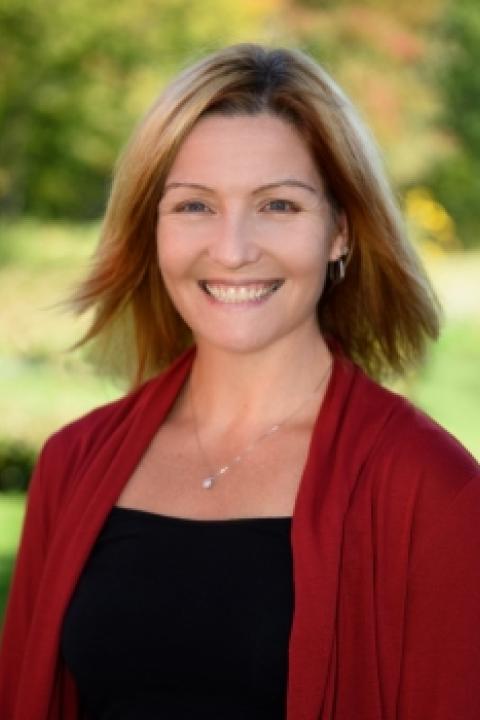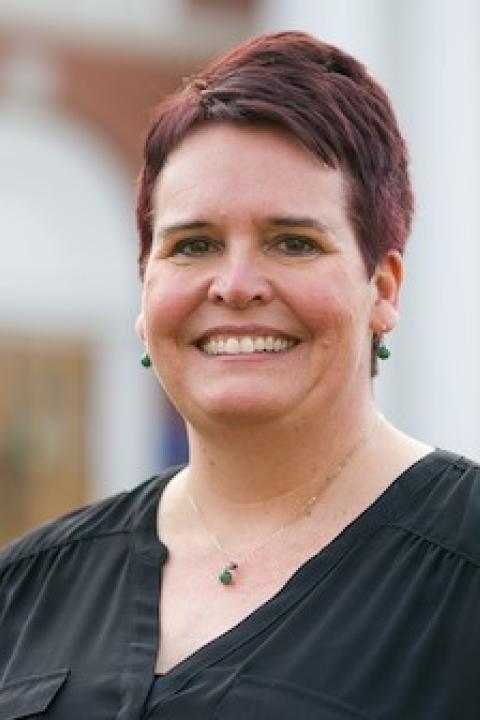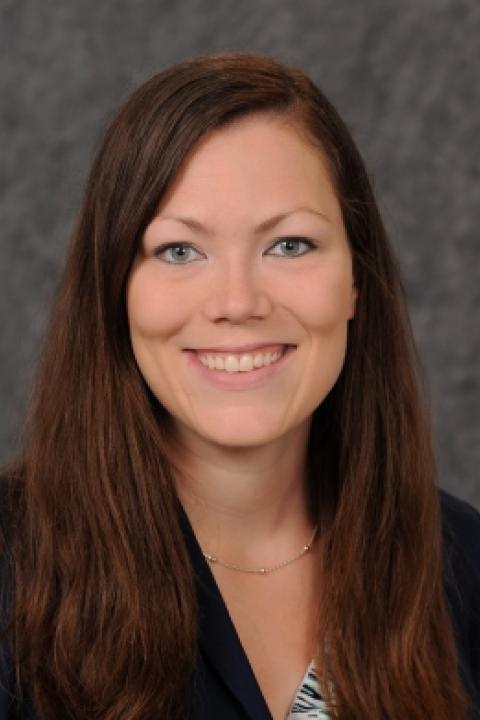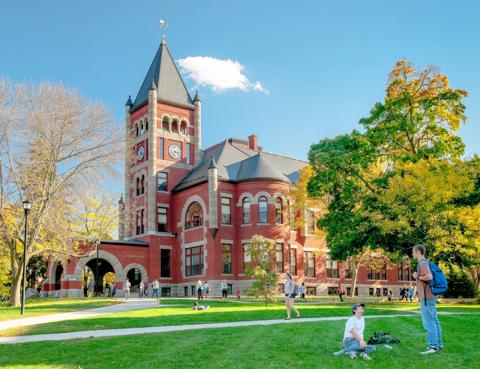Applications to the licensure program of the Masters in Marriage and Family Therapy are currently not being accepted.
WHY GET YOUR MASTER’S DEGREE IN HUMAN DEVELOPMENT AND FAMILY STUDIES WITH AN OPTION IN MARRIAGE AND FAMILY THERAPY?
The human development and family studies option in marriage and family therapy will prepare you for a rewarding career helping others, whether you choose to work in mental health, family service, human service or medical settings. You’ll learn about the major therapy models and develop the skills to assess and treat diverse populations with understanding, sensitivity and respect. You’ll receive training that emphasizes treatment of individuals, couples and families in relationship to the larger systems that influence them. You’ll also gain hands-on experience through supervised clinical practice at UNH’s Marriage and Family Therapy Center, in addition to externship opportunities.
WHY CHOOSE UNH’S HUMAN DEVELOPMENT AND FAMILY STUDIES PROGRAM?
Our marriage and family therapy degree option is fully accredited by the Commission on Accreditation for Marriage and Family Therapy Education (COAMFTE) and meets the academic requirements for clinical membership in the American Association for Marriage and Family Therapy. At UNH, you’ll experience a collegial and supportive culture, with award-winning mentorship provided by nationally recognized faculty. We offer scholarship opportunities and competitive stipends. You’ll have opportunities to conduct research, publish and present at conferences.
POTENTIAL CAREER AREAS
- Administration
- Community mental health
- Education
- Employee assistance programs
- Group practice
- Healthcare facilities
- Humanitarian work
- Legal and correctional facilities
- Private practice
- Research
- Social services
- Therapeutic care program evaluation
From the CHHS Blog
Curriculum & Requirements
Beginning in the 2025-2026 academic year, the M.S. Human Development and Family Studies: Marriage and Family Therapy is pausing admissions to the program. Current students will continue to have access to the same high-quality education and resources until they graduate.
The Marriage and Family Therapy Program prepares students to work in mental health, family service, medical, and human service settings. The program is fully accredited by the Commission on Accreditation for Marriage and Family Therapy Education and meets the academic requirements for clinical membership in the AAMFT. The Program generally takes two years including two summers and requires five hundred (500) hours of clinical practice in order to graduate. Additional hours of clinical practice under supervision are required after graduation to meet state licensure standards and qualify for clinical membership in AAMFT.
The Marriage and Family Therapy Program contributes to the well-being of individuals and families through knowledge, teaching leadership and professional practice. The program is fully accredited by COAMFTE and meets the academic regulations for clinical membership in the American Association for MFT. Through connecting research, practice and policy our faculty conducts significant research on a range of issues facing individuals, couples and families in today's society.
Clinical training offered within the MFT Program emphasizes treating individuals, couples, and families in relationship to larger systems that influence them. Supervised practica are continuous throughout the program. MFT program graduates learn to function as competent and ethical marriage and family therapy professionals and have a solid knowledge base of marriage and family therapy theory and research as well as clinical practice principles. The MFT Program successfully prepares graduates for employment as marriage and family therapists in community agencies and private practice.
Part-time MFT students will be admitted for the fall semester only. Part-time admission to the MFT is available on a case-by-case basis until January 15th to begin matriculation in the fall semester. Interested applicants should contact Dr. Tyler Jamison, Graduate Coordinator, for information. An interview may be required.
What makes our program special?
- Competitive stipends and scholarship opportunities.
- Award-winning mentorship from nationally recognized faculty.
- Collegial and supportive culture.
- On-campus clinical facilities.
- Access to UNH's Career and Professional Development .
- Opportunities to conduct research, publish and present at conferences.
- 97% of students who have enrolled in the UNH Marriage and Family Therapy Program have graduated.
- 100% of graduates who have taken the national exam have passed.
- Exceptional placement rate post-graduation.
All applications for admission must be submitted electronically using the Graduate School Website.
M.S. Degree Requirements: Marriage and Family Therapy Program
All students are expected to:
- Minimum of two years of full-time study, including two summers.
- Students must complete 72 credits of required coursework, which includes 24 successfully completed credits of practicum.
- 500 hours of supervised clinical practice.
- Satisfactorily complete an integrative paper and presentation.
Requirements
| Code | Title | Credits |
|---|---|---|
| Successful completion of a 12-credit core curriculum | ||
| HDFS 991 | Professional Issues for Family Specialists | 4 |
| HDFS 993 | Theoretical Approaches to Human Development and Family Studies | 4 |
| HDFS 994 | Research Seminar | 4 |
| Successful completion of approved coursework (35 - 36 credits) | ||
| HDFS 841 | Marital and Family Therapy | 4 |
| HDFS 930 | Play Therapy | 4 |
| HDFS 942 | Advanced Systems of Marital and Family Therapy | 4 |
| HDFS 945 | Family Therapy Practice I | 4 |
| HDFS 946 | Critical Problems in Family Life | 4 |
| HDFS 947 | Family Therapy Practice II | 4 |
| HDFS 952 | Clinical Interventions in Couples Therapy | 4 |
| HDFS 954 | Sex Therapy | 4 |
| Elective | 3-4 | |
| Successful completion of 24 practicum credits (500 hours) | ||
| HDFS 898 | Marriage and Family Therapy Practicum | 4/semester |
| Successful completion and presentation of an integrative paper and video representing student's theory of change. | ||
Grade Policy
A graduate student who fails a course must immediately attend a mandatory meeting with the instructor of the course, the Human Development and Family Studies Graduate Coordinator, and, if desired, the student's adviser. If a graduate student receives grades below "B-" in two or more courses, the Human Development and Family Studies Graduate Coordinator will make a recommendation to the Graduate School that the student be dismissed from the Human Development and Family Studies Graduate program.
Program Learning Outcomes
- Students will demonstrate a knowledge of the major models of marriage and family therapy and other systems related theories.
- Students and graduates will demonstrate competencies in assessing and treating varied populations and problems through a systemic lens.
- Students and graduates will demonstrate an understanding, sensitivity and respect for multicultural populations.
- Students and graduates will develop an awareness for larger systems and family/individual developmental perspectives.
- Students and graduates will demonstrate competency in understanding and practicing the ethical principles of the AAMFT/Code of Ethics and ethical decision making.
- Students and graduates will demonstrate knowledge of MFT research.
- Students and graduates will demonstrate understanding of the relationship between theory, research and practice.
Professional Licensure/Certification Disclosures
The University of New Hampshire offers a number of academic programs designed to lead to professional licensure or certification in New Hampshire. However, completing a UNH degree/program does not guarantee professional licensure or certification. Eligibility may also depend on factors like years of work experience, professional examinations, passing a background check, and other criteria.
UNH does not guarantee that its professional licensure programs will satisfy the criteria of professional licensure boards in other states. Some states maintain different requirements for professional licensure or certification and requirements can change frequently. Federal regulations require the University to make public disclosure of certain information regarding professional licensure or certification programs, regardless of the modality the program is offered (i.e., in-person or online). The University provides guidance below but recommends students contact their state/territory licensing or certification board to ensure a program meets specific state/territory requirements.
Visit the Office of the Registrar's website for information about whether this program meets professional licensure requirements in your state.
Deadlines
Applications must be completed by the following deadlines in order to be reviewed for admission:
- Fall: N/A
- Spring: N/A
- Summer: N/A
- Special: N/A
Application fee: $65
Campus: Durham
New England Regional: ME VT MA
Accelerated Masters Eligible: No
New Hampshire Residents
Students claiming in-state residency must also submit a Proof of Residence Form. This form is not required to complete your application, but you will need to submit it after you are offered admission, or you will not be able to register for classes.
Transcripts
If you attended UNH or Granite State College (GSC) after September 1, 1991, and have indicated so on your online application, we will retrieve your transcript internally; this includes UNH-Durham, UNH-Manchester, UNH Non-Degree work and GSC.
If you did not attend UNH, or attended prior to September 1, 1991, then you must upload a copy (PDF) of your transcript in the application form. International transcripts must be translated into English.
If admitted, you must then request an official transcript be sent directly to our office from the Registrar's Office of each college/university attended. We accept transcripts both electronically and in hard copy:
- Electronic Transcripts: Please have your institution send the transcript directly to grad.school@unh.edu. Please note that we can only accept copies sent directly from the institution.
- Paper Transcripts: Please send hard copies of transcripts to: UNH Graduate School, Thompson Hall- 105 Main Street, Durham, NH 03824. You may request transcripts be sent to us directly from the institution or you may send them yourself as long as they remain sealed in the original university envelope.
Transcripts from all previous post-secondary institutions must be submitted and applicants must disclose any previous academic or disciplinary sanctions that resulted in their temporary or permanent separation from a previous post-secondary institution. If it is found that previous academic or disciplinary separations were not disclosed, applicants may face denial and admitted students may face dismissal from their academic program.
Letters of recommendation: 3 required
Recommendation letters submitted by relatives or friends, as well as letters older than one year, will not be accepted.
Personal Statement/Essay Questions
In lieu of a personal statement, applicants to the MFT Program (only) must provide answers to five specific questions. Responses to the MFT questions should be submitted in numbered format and should address each question separately and explicitly. 1. Identify what you feel are the essential characteristics of a functional family. 2. Describe the reasons why you are interested in becoming a marriage and family therapist. 3. What do you think are the major challenges faced by contemporary marriage and family therapists? 4. What are your professional goals? 5. Identify your personal characteristics, skills, and experiences that will facilitate your success in achieving your professional goals.
Statements must be included with your submitted application.
Background Check
Admitted students will be required to complete a national criminal background check. It will be reviewed by the department of Human Development and Family Studies (HDFS) before an applicant can enroll. Background checks will be completed through Verified Credentials. Full instructions can be found here.
-
Applicants will follow this link, enter the program code CCCRP-22777, and follow the instructions provided by Verified Credentials.
-
The fee for the background check is $59 and will be paid by the applicant directly to Verified Credentials.
-
Once completed, you will receive an email from Verified Credentials. Forward this email to to HDFS.Department@unh.edu.
Additional Department Requirements
In addition to the regular graduate school requirements, a personal interview may be required.
Important Notes
All applicants are encouraged to contact programs directly to discuss program-specific application questions.
International Applicants
Prospective international students are required to submit TOEFL, IELTS, or equivalent examination scores. English Language Exams may be waived if English is your first language. If you wish to request a waiver, then please visit our Test Scores webpage for more information.
Regulations and Portability of MFT Degree
The Marriage and Family Therapy profession leads to licensure in all 50 states. However, it must be recognized that each state has its own law and regulations about what is required to become a licensed MFT.
Most states require specific coursework in the areas of ethics, assessment and diagnosis, research, family theories and MFT clinical practice. Most states also require specific number of client contact hours and clinical supervision. In most states, some of those hours are completed as a graduate student and there are additional clinical and supervision hours that are required as a MFT graduate. You will be provided at the MFT Orientation the link from aamft.org to each state’s license requirements (MFT State/Province Resources).
It is important to know that not every state will accept a degree and the supervised hours that are earned from another state. It is strongly recommended that you review the licensure requirements in the state that you plan to practice as soon as possible so that you understand what may and may not be accepted in that state.
The UNH-MFT Program’s academic and clinical training curriculum was designed to and fully meets the requirements for licensure as a marriage and family therapist in the state of New Hampshire. Please refer to Appendix B of the MFT Handbook for a complete description of New Hampshire’s licensing requirements.
If you have questions about the UNH-MFT Program’s alignment with professional licensure, you may contact the Program Director, Dr. Trent Call, trent.call@unh.edu.
Explore Program Details
Marriage and Family Therapy Program Core Faculty
Dr. Trenton Call, Ph.D. Assistant Clinical Professor and Program Director of the Marriage and Family Therapy Program.
Dr. Call received his master’s degree from Oklahoma State University, 2017 and obtained his doctorate from Florida State University, 2021. Dr. Call’s interests include Marriage and Family Therapy, couples therapy, families with children with intellectual and developmental disabilities, parenting, and family therapy training/supervision. Dr. Call is an AAMFT Approved Supervisor. Dr. Call teaches many of the MFT theory and practice courses and teaches two of the clinical practicums per year. As Program Director, he is primarily responsible for overseeing the ongoing development and implementation of the program’s curriculum and its clinical training program. He also oversees the budget for the program and the MFT Center and handles administration of the Marriage and Family Therapy Center and its policies and procedures. It is Dr. Call’s responsibility to ensure the continued quality of all aspects of the program, as well as to oversee the planning and development of all aspects of the Marriage and Family Therapy Program. Dr. Call has been provided one course release each year to support his ability to perform these responsibilities. In addition, Dr. Call distributes his five-course teaching load throughout the year, including supervising students within the context of two clinical practicums. Because his schedule is limited to two courses in the fall and two courses in spring and summer, he has sufficient time to maintain oversight of the MFT program year-round.
Dr. Marissa Mosley, Ph.D. Assistant Professor in the MFT Program.
Dr. Mosley received her master’s degree from University of San Diego in 2016 and obtained her Doctorate from Florida State University in 2022. Her clinical experience includes private practice, collaborate care, and community clinics. Dr. Mosley’s clinical interests include couples therapy, sex therapy, and marriage and family therapy training/supervision. Dr. Mosley researches the role of technology in romantic relationships and works to bridge the gap between research and practice. Dr. Mosley is an AAMFT Approved Supervisor and teaches MFT courses and clinical practicum.
Dr. Kerry Jankins, Ph.D., Associate Professor and Chair of the HDFS Department.
Dr. Jankins’ research interest focuses on children's social development with an emphasis on conflict resolution, empathy, and peer relationships. Kerry has sixteen years of experience examining the importance of fathers and parent-child attachment relationships. Dr. Jankins also co-created The Family Connection Project in 1998, which examines the impact of incarceration on the family system. The project's goals are to evaluate the effectiveness of the family programs that are provided to inmates and their families, examine the differential effects of maternal and paternal incarceration on children's socio-emotional development, and collect descriptive information about families with incarcerated members. She regularly teaches FS 930, Child Development in Context for the MFT Program.
Dr. Sahitya Maiya, Ph.D., Assistant Professor of HDFS at UNH.
Dr. Maiya teaches research methods and family theories in the MFT program. Her research program focuses on the connections between family socialization, risk-resilience, and socioemotional and behavioral well-being during adolescence and emerging adulthood in diverse contexts. One line of research highlights how family members such as parents and siblings socialize prosocial behaviors among culturally diverse adolescents and emerging adults. A second line of research underscores the effects of risk (e.g., stress) and resilience (e.g., coping) factors on substance use, school bonding, and prosocial behaviors in adolescents and emerging adults from diverse backgrounds.
Dr. Barbara R. Frankel, Emerita Associate Professor, was the Director of the Marriage and Family Therapy Program from its inception in 1988 until 2022. She is an AAMFT Clinical Fellow, Approved Supervisor and is a Licensed Marriage and Family Therapist and Licensed Clinical Social Worker. Dr. Frankel received her B.A. from the University of Wisconsin at Madison, 1970; her M.S.W. from Kent State University, 1976; and her Ph.D. from Purdue University, 1988. Dr. Frankel is accredited to helping to bring MFT’s to New Hampshire and played a significant role in establishing it as a credible and respected helping profession.
Dr. Mark Moses, Emeritus Clinical Associate Professor, obtained his doctorate in Counseling Psychology from Ohio University in 1979 and completed a post-doctoral fellowship in Clinical Psychology. Dr. Moses is a licensed psychologist in New Hampshire and Massachusetts, a clinical member of AAMFT and an Approved Supervisor, and an EMDRIA Approved Consultant. Dr. Moses has also participated in two specialized training programs at the Family Institute of Cambridge, mentored by Dr. Carter Umbarger: an intensive program in systems therapy in 1981-1982, and an advanced supervision group in 1983-1984. Before his full-time appointment to the MFT program faculty in 2005, he served as an adjunct faculty member in the program for fifteen years. In 2007 Dr. Moses was promoted to Clinical Associate Professor, and Associate Director of the MFT Program and MFT Center.
Jennifer Golia, LMFT, is a Marriage and Family Therapist in Portsmouth New Hampshire. She is an approved AAMFT supervisor and currently serves as the chair of the New Hampshire Association of Marriage and Family Therapy.
Community Supervisors
Sandra Beaudry, LMFT, B.S. University of Southern New Hampshire, 1987; University of New Hampshire; M.S. Marriage and Family Therapy, University of New Hampshire, 1992, AAMFT Approved Supervisor.
Julie Golkowski, LCMHC, Seacoast Youth Services, AAMFT Approved Supervisor.
Joan S. Haley, LMFT, NH-Dartmouth Medicine Residency Concord Hospital: Family Health Center, B.A. Smith College; Ph.D. Candidate, Cornell University; M.S., Marriage and Family Therapy, University of New Hampshire Manager, Behavioral Health Services NH-Dartmouth Medicine Residency Concord Hospital: Family Health Center, AAMFT Approved Supervisor.
Lucy Putnam, LMFT, Community Partners, B.A. Hamilton College, 1980; M.S. Marriage and Family Therapy, University of New Hampshire, Director of Behavioral Health Training and Professional Development, AAMFT Approved Supervisor.
Karla LaRochelle, LMFT, Seacoast Mental Health Center, B.A. Colegio, La Florida, 1995; M.S. Marriage and Family Therapy, University of New Hampshire, 2002, Manager, Seacoast Mental Health Center, AAMFT Approved Supervisor.
Jennifer Golia, LMFT, Seacoast Youth Services, AAMFT Approved Supervisor.
Graduates with a Marriage and Family Therapy (MFT) master’s degree are highly trained professionals who bring a family-oriented perspective and treatment approach to mental, emotional, behavioral, and interpersonal conditions. MFT's address a wide-range of issues that affect individuals, couples and family members. An MFT can provide child, youth, adult, family and couples counseling.
Many MFT graduates become professional therapists and some graduates prefer to work with specific populations, such as military families. MFT graduates also develop rewarding careers in community and social service, international and humanitarian work and research.
Private Practice
A MFT may set up a private practice to serve individuals, couples and families. A therapist may specialize in a particular area, like adult depression, couples or sex therapy.
Human Services
Outpatient Care Facilities: MFT's are hired to treat children, adolescents, adults and seniors battling substance abuse and mental illness.
Inpatient Care Facilities and Hospitals: MFT's are hired to work as inpatient therapists at healthcare facilities and hospitals.
Schools: MFT's work at all levels of a school system, including working directly with students to counsel students and parents together.
Legal and Correctional Facilities: MFT's assist families and couples in legal crisis and work with legal authorities and correctional systems.
Employee Assistance Programs: MFT's are hired to give short-term counseling, as well as refer employees and their family members to additional services, if needed.
Research
While working for social service agencies and businesses, MFT graduates may engage in a number of research activities including: conducting interviews, facilitating focus groups, or creating a valid, reliable survey.
MFT's also engage in needs assessments and evaluations of therapeutic care programs.
If you enjoy statistical analysis, you may want to consider going on to receive a Ph.D.
International and Humanitarian Work
MFT's working internationally or for humanitarian organizations usually work with for profit and non-profit agencies such as the Red Cross or Peace Corps, and in various support leadership positions that address the therapeutic needs of individuals, couples and families.
- Collegial and supportive culture
- Competitive stipends
- Scholarship opportunities from the university and department
- Award-winning mentorship from nationally-recognized faculty
- Many career options such as private practice
- On-campus clinical facilities
- Access to UNH’s Preparing Future Faculty (PFF) program
- Travel stipend available
- Exceptional placement rate post-graduation
- Open research teams
- Oopportunities to conduct research, publish, and present at conferences
- 97% of students who have enrolled in the UNH Marriage and Family Therapy Program have graduated
- 100% of graduates who have taken the national exam have passed
The MFT Program’s definition of diversity states “The MFT Program recognizes diversity in terms of race, age, gender, ethnicity, sexual orientation, gender identity, socioeconomic status, disability, health status, religious, spiritual, and/or political beliefs, veteran status, nation of origin or other relevant social categories, immigration, citizen status and language. In addition, the MFT program includes to its definition to diversity any person who identifies with a minority group that has been marginalized, disenfranchised, persecuted and/or disempowered as a result of stigmatization or discrimination. For instance, the program recognizes as diverse, parents or siblings who live with and are responsible for persons with mental, physical or developmental disability because these individuals equally can experience disempowerment, stigma, marginalization and discrimination as a family.”
What Makes Us Different
- Our program emphasizes structural, strategic, solution-focused and systemic approaches to Marriage and Family Therapy.
- Clinical Training is provided under the direction of supervisors approved by the American Association for Marriage and Family Therapy (AAMFT) in the department's Couples and Family Therapy Center.
- Second-year students have the opportunity to participate in a community-based experience (external internship) that accompanies the clinical practicum on campus.
- The clinical training emphasizes treating the individual, couple, and family in relationship to the larger systems that influence them.
- The program is fully accredited by the Commission on Accreditation for Marriage and Family Therapy Education (COAMFTE) and meets the academic requirements for clinical membership in the American Association for Marriage and Family Therapy.
Student Achievement Criteria Data
- Over the past ten years, 97% percent of students who have enrolled in the UNH Marriage and Family Therapy Program have graduated.
- 100% of graduates who have taken the national exam have passed.
- For information on other students' achievements, please visit our Friends & Alumni page.
The Department of Human Development and Family Studies contributes to the well-being of individuals and families through knowledge, teaching, leadership, and professional practice. The Marriage and Family Therapy program at UNH is fully accredited by the Commission on Accreditation for Marriage and Family Therapy Education (COAMFTE) and meets the academic regulations for clinical membership in the American Association for MFT. Through connecting research, practice and policy our faculty conduct significant research on a range of issues facing individuals, couples and families in todays society.
